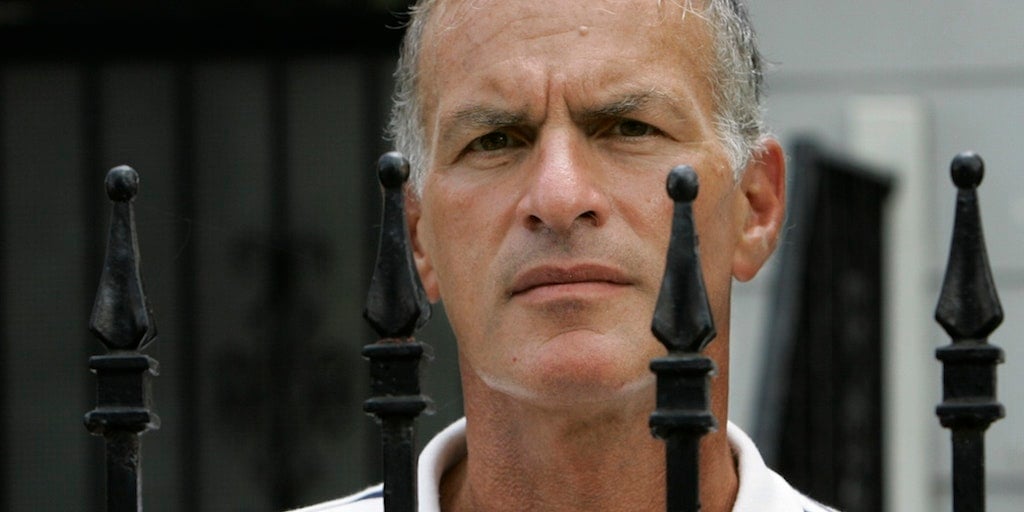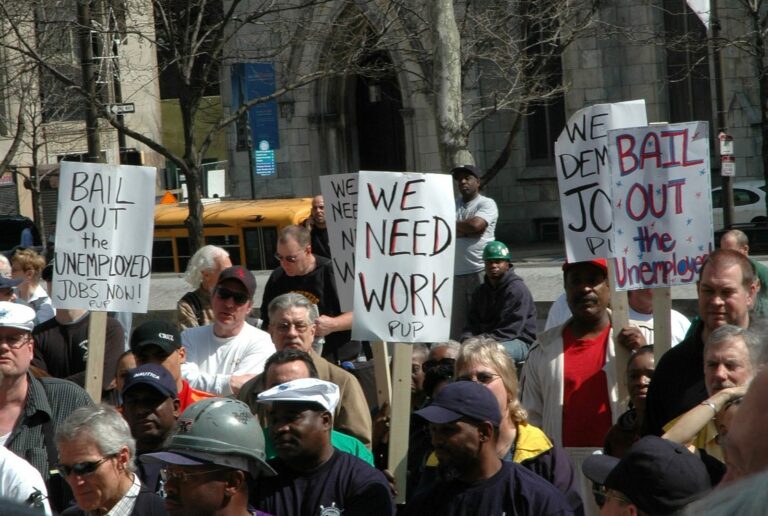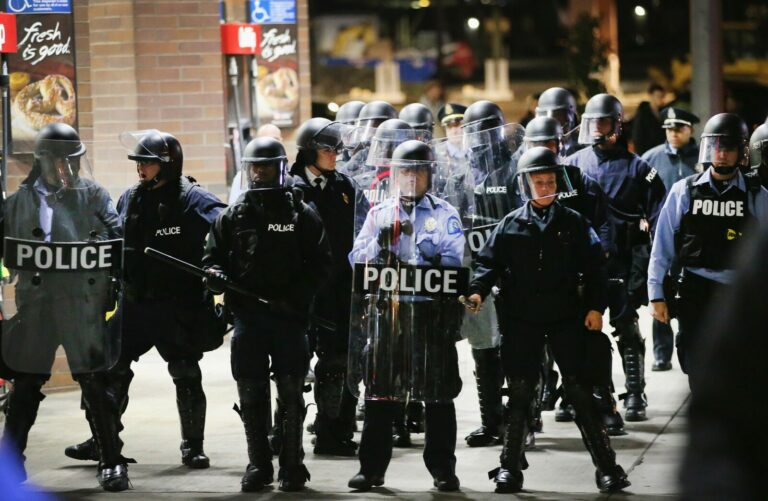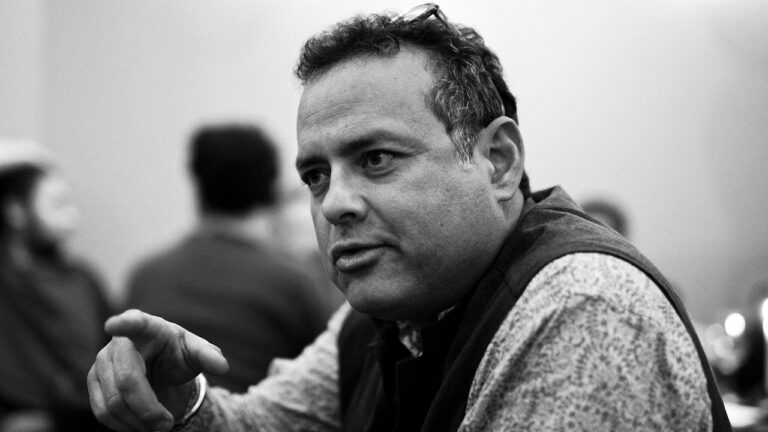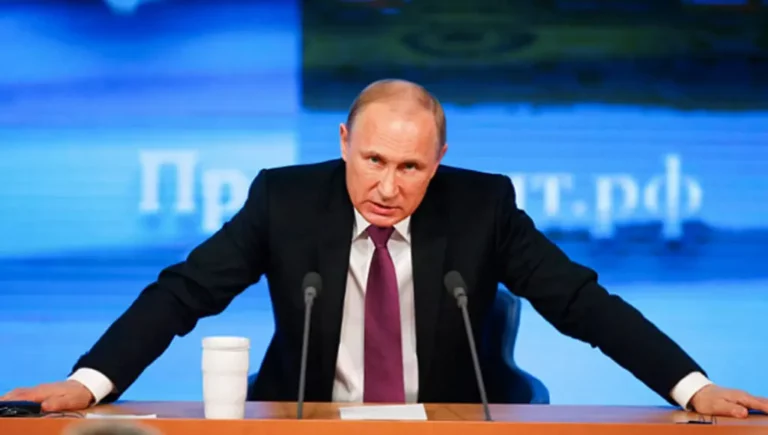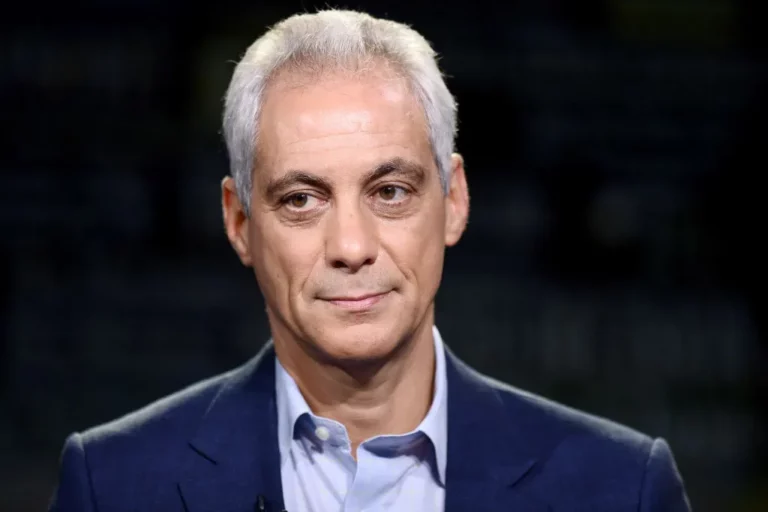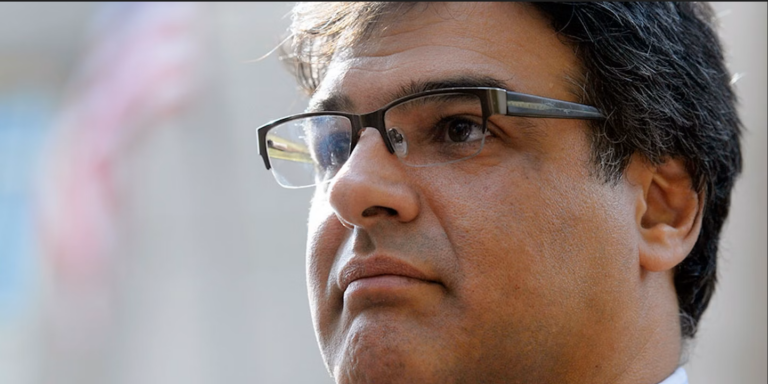The Making of Norman Finkelstein – Reality Asserts Itself (pt 2/8)
This is an episode of Reality Asserts Itself, produced on December 30, 2014. Mr. Finkelstein talks about his Holocaust survivor parents and their influence in the formation of his early identity.
PAUL JAY, SENIOR EDITOR, TRNN: Welcome back to Reality Asserts Itself on The Real News Network. I’m Paul Jay. We’re continuing our series of interviews with Norman Finkelstein.
Thanks for joining us again.
NORMAN FINKELSTEIN, POLITICAL SCIENTIST, ACTIVIST, AND AUTHOR: Thank you so much.
JAY: So this is an abbreviated biography. Look below the video player and you’ll see the whole biography.
Norman is one of the foremost U.S. scholars of Israeli-Palestinian conflict. His most recent book and latest book is Method and Madness: The Hidden Story of Israel’s Assaults on Gaza.
So thanks for joining us.
So we’ve started kind of getting into a bit of your biographical story, but let’s go back sort of to the beginning.
Your mother was a Holocaust survivor, and she was–your family came from Poland. Where was the family originally?
FINKELSTEIN: Both of my parents were from Warsaw, and both of them were in the Warsaw Ghetto. The Germans invaded Poland in September 1939. I think the ghetto was built about a year and a half after, if I’m not mistaken. They were both in the ghetto until April 1943, when there was the uprising and then the Nazi suppression of the uprising.
The survivors of the uprising, the numbers are something like around 30,000. They were all deported to Majdanek concentration camp. So both of my parents were deported to Majdanek. And then eventually my mother ended up in two slave labor camps, and my father ended up in Auschwitz, though, as I understand it, he was in something like seven or eight concentration camps. He ended up in Auschwitz. He was in the Auschwitz death march. He was liberated by the Americans. My late mother was liberated by the Russians. And then they ended up in the DP, the displaced people camps, in Austria, Linz, Austria, where my eldest brother, Henry, was born. And then they ended up in the United States.
My father was active in the left wing of the Zionist movement, Hashomer Hatzair. My mother, as I gather, she was–both my parents were extremely sympathetic to the Soviet Union to the last day of their lives. They died 20 years ago now, in 1995. To the last day of their lives, you could not criticize Stalin, could not say one single word against him.
JAY: What did they make of the critiques or the revelations?
FINKELSTEIN: They didn’t care. As far as they were concerned (and it’s factually correct), it was the Soviet Union that defeated the Nazis. The whole war was fought on the Eastern Front. About 200,000 Americans were killed. About 400,000 British were killed. About 30 million Russians were killed. That sort of tells you the story. On the Eastern Front, it was a war of annihilation, and 90, 95 percent of the troops, the Nazi troops, were on the Eastern Front throughout the war.
So, as far as they were concerned, the Soviet Union defeated the Nazis, and that’s all they cared about. I wouldn’t say they were narrowminded. They were very antiwar, and they felt that the Soviet people understood war, understood what it means to pass through a war. And so there was a certain sense of affinity to the Soviet people and to the Soviet Union. And they didn’t care about–they didn’t believe the critiques, they would say it’s all CIA, even though my mother was extremely intelligent. She was classically educated, knew many languages, spoke–displayed her knowledge of Latin and many other languages, and also English. Her English was quite extraordinary. But as I said, the human capacity for self-deception is bottomless, and you could not get my parents to budge on the question of Stalin.
JAY: What was their attitude towards American politics?
FINKELSTEIN: I would say–I don’t want to use such a forceful word as hated, but they saw the world through the prism of the Nazi Holocaust. They were eternally in debt to the Soviet Union. And so anyone who was anti-Soviet they were very harsh on.
And my parents were real survivors. A lot of people who claim they were survivors of the Nazi holocaust, it’s complete nonsense. The Nazi Holocaust was an extremely efficient–as the late Raul Hilberg, the chief historian on the Nazi [holocaust], the most knowledgeable, as he described, it was an assembly line, factory-like extermination of the Jews, which meant very few people survived. The figures Hilberg gives, and others who are knowledgeable, like Henry Friedlander, who I guess has already passed from the scene also, under 100,000 Jews survived the Nazi Holocaust. If you define the Nazi Holocaust as the ghettos, the labor camps, and the concentration camps, that universe, if that’s what it means to pass through the Nazi Holocaust, under 100,000 survived. So we’re talking about a very small number. My parents were among those.
When my parents were growing up, their community of friends were mostly people who they knew before the war or people who somehow came over after World War II but were from Europe. Of all my parents’ friends, of all of them, my parents were the only ones that were in the camps. They had one friend who was kept by what was called–I’m using their language–a Christian family in Poland, a lot who fled to the Soviet Union from Poland and survived that way. The only ones who were in the camps were my parents.
JAY: What was their attitude to the creation of the state of Israel? ‘Cause the Soviet Union, if I understand it correctly, cast the first vote in favor [of it (?)]
FINKELSTEIN: And they felt a lot of affinity for Gromyko’s speech, the foreign minister, at the UN, Gromyko. He actually delivered a very moving speech in support of the Jews have earned a right to a state.
But as far as my parents were concerned, Israel then quickly sold its soul to the West, and my parents would have no truck with it.
They were pretty–they had–it’s strange to say. My family was odd. They had a deep sense of faithfulness: you don’t betray friends. The Soviet Union defeated the Nazis. And then, when Israel joins with the West in the Cold War, for my parents that was the ultimate betrayal.
JAY: But they didn’t accept this idea that that this is the refuge so it doesn’t happen again.
FINKELSTEIN: No, I wouldn’t–I think they did accept that idea.
JAY: They did.
FINKELSTEIN: There’s a difference between the idea of a state where Jews can go and a state of Israel, the specific state of Israel, and how it carried on in world affairs. They accepted the first part, that after–the feeling of my parents was the whole world abandoned the Jews during World War II. I don’t fully agree with that. I’m just giving you their point of view. The whole world abandoned them, and therefore Jews needed a refuge, they needed a place to go when the moment of truth–if and when it came. So they accepted that idea.
If you asked, as I did, if you asked, then do you accept that this state has the right to discriminate against non-Jews, well, no. That’s–you couldn’t even argue with them–there was no point in arguing. Of course they rejected that idea. So if you ask, how can you support a Jewish state if by Jewish state it means that non-Jews are discriminated against, well, the way my late mother dealt with contradictions was to say, quote, get away from me. She didn’t want to argue. You know? It’s one of those contradictions that you can’t resolve in your mind. It’s not easy to resolve on paper, either, even if you’ve thought about it for a long time. So they accepted that idea. What they rejected was its practical manifestation, namely, the actual state of Israel, because it aligned itself with the West.
You know, my parents could easily have made a small kfortune–not a big fortune–by hawking their Holocaust pedigree. And they were not indifferent to money. Let’s be clear about that. But they would never in public say anything against the Soviet Union. And that was a requirement at the time, because we’re talking about the 1970s and ’80s, with the whole Free Soviet Jewry Movement, and you were supposed to denounce the Soviet Union as being anti-Semitic, and so on and so forth. So in order to hawk your Holocaust credentials, you had to at that time denounce the Soviet Union. Impossible. They would never–they had that level of faithfulness and gratitude. And it’s a strange thing to have to say, but they had a sense of gratitude to Stalin and faithfulness.
JAY: And how early in the development of the state of Israel do they become mostly critics of Israel?
FINKELSTEIN: No, very early, because Israel officially aligned itself with the U.S. at the time of the Korean War.
JAY: And was the issue of–the expulsion of Palestinians an issue? Or was–.
FINKELSTEIN: It didn’t exist. Nobody knew. Nobody knew in the West that Palestinians even existed. My parents didn’t know. Most people who were in Europe and coming over, they didn’t know anything about Palestinians.
JAY: So do you, as you become more politically conscious, I don’t know, as you hit ten, 11, 12, 13 years old, I guess somewhere in there or early–.
FINKELSTEIN: Well, that’s a little early, but not so early. I was already–.
JAY: ‘Cause you’re growing up in a pretty political household, it sounds.
FINKELSTEIN: Completely political. Our household consisted of, Sunday morning, you divided up–I’m serious. It’s weird now to think about. You divided up sections of The New York Times over the breakfast table. My father would always ask for–I remember he said, give me the illustrated (the illustrated meant the magazine section). And each person would take a section.
JAY: What section did you get?
FINKELSTEIN: No recollection. If you want to know, I don’t recall. But I remember all the time talking about politics, in particular the war in Vietnam.
Actually, my parents got nervous. I remember, okay, 1964–.
JAY: You’re born in ’53?
FINKELSTEIN: Yeah. In ’64, when Johnson is running for president, I was in sixth grade at the time. He was running against Goldwater. And they were very anti the Vietnam War, at an early time, before it was popular. They were very anti the Vietnam War. And, of course, I used to just repeat what they said in class. I didn’t know.
And I remember once there was supposed to be a debate, and I had myself all primed with statements from my parents about the Vietnam War, and I remember my parents got nervous because–they weren’t paranoid, but they were scared. They wouldn’t sign–they were scared of secret police and CIA and FBI. Of course, they lived through the Rosenbergs. And I remember my father once–.
JAY: Quickly, for younger people that don’t know, like, three sentences on who the Rosenbergs were.
FINKELSTEIN: Julius and Ethel Rosenberg were Jews on the Lower East Side accused of being spies for the Soviet Union, became an international cause celebre, and they were eventually executed under Eisenhower.
Incidentally, it was all Jews who sort of involved themselves in the process. The first judge was Irving Saypol, then Judge Kaufman. Prosecution was Roy Cone. They made sure it wasn’t anti-Semitic.
JAY: So this put a scare in them. And so when it comes to you speaking about Vietnam–.
FINKELSTEIN: And they wouldn’t sign the petition, you know, because they were afraid, even though, of course, they felt deeply for the Rosenbergs.
When my father came over, one of the conditions for coming into the U.S. is you had to sign a statement saying you would fight for the U.S. in the event of a war with Russia. He signed it, but he was very pained by having to do that.
And so they got very nervous. And I remember we were standing in the kitchen and I was reciting my arguments, and all the time my mother and father started to say, but you’d better say some arguments in favor of the war. Where did that come from? I mean, for Christ’s sake, I mean, the way they talked about the war–and they didn’t–war was not an intellectual matter in my home. It was–they hated intellectualizing the war. They hated–you know, I remember Allard Lowenstein, he used to appear with Bill Buckley in Firing Line. And Lowenstein was, quote-unquote, against the war; Buckley was, quote-unquote–well, he was for the war. But at the end, after the debate ends, they get up and they hug each other. What’s that? You’re talking about war, you’re talking about death, destruction.
JAY: Yeah, I had that same feeling last night. I was watching the final show of Colbert, and Henry Kissinger’s there singing along with everybody, sort of a goodbye song. And there were several war criminals singing along there.
FINKELSTEIN: Chomsky used to call him the doctor of death. Yeah.
So, even when I was in high school, I was on the debating team, and the art of the debating team was they would give you what was called a resolution or a proposition, and you had to be equally adept at arguing both sides. You would come in, and they would tell you, you’re going to argue the affirmative or you’re going to argue the negative. And my mother, she was really–she was against it. She [said] that just teaches you to be two-faced. I don’t really agree with her now. There is a value to that, the devil’s advocate, and learning, understanding every aspect of your argument before you take a side. So hearing out the devil’s advocate. But it was also true. It did teach you to be two-faced. Both of those facts are true.
And there was–as I said, there was this deep conviction: you had to be faithful to a cause, truthful to a cause. A cause is not something intellectual; it’s something about death and destruction. Sometimes if I would talk in my family about war, my [mother’d kind of go, (?)] “What do you know about war?” Which was true, really. What did I know about war? So these were not intellectual matters. And as I said, my late mother was extremely intelligent, but she didn’t teach me how to think through how you make those arguments.
JAY: Well, here’s–I was about to ask you, do you then internalize this loyalty to the Soviet Union, their attitude toward Stalin, and so on? As you become a teenager, is this a part of your identity?
FINKELSTEIN: Oh, sure. It was–the stories now are funny. I remember in, like, seventh grade in my social studies class, we were doing World War II, and, of course, I’m defending Stalin. It was just like, where does this guy come from? My social studies teacher was named Josh Abramson [spl?]. I still remember. He was an Orthodox Jew. And so I would say that Stalin transformed Soviet Union from a backward agricultural country into an industrial country–.
JAY: Which is true.
FINKELSTEIN: Which was true. And there was education and health. And then he would say, what about all the death? And I would go home, I’d say to my mother, what about all the death? And she says, well, that’s the price that you have to pay to achieve these things. I would come back, say, that’s the price you have to pay. He would say, oh, in other words, you’re saying the ends justify the means. I didn’t know what the hell that means, ends, means, what the hell he’s talking about. I’d go home and say, Ma, he’s saying the ends justify–. Yes, in this case, the ends–. I’d go right back, just repeating, you know, what I’d hear at home.
It took me a long time to develop my own intellectual identity, and I would say they are probably the critical–well, there were two critical things. First of all, I became ideologically blind, and I paid a huge personal price in it, because I–.
JAY: Okay.
FINKELSTEIN: Mhm.
JAY: We’re going to do that the next segment, because, as you said in part one, you become a Maoist. But one of the things about being a Maoist is critiquing the Soviet Union. So we’ll get to that in the next segment of our series of interviews with Norman Finkelstein on Reality Asserts Itself on The Real News Network.
“Norman Gary Finkelstein is an American political scientist, activist, former professor, and author. His primary fields of research are the Israeli–Palestinian conflict and the politics of the Holocaust. He is a graduate of Binghamton University and received his Ph.D. in political science at Princeton University.”
